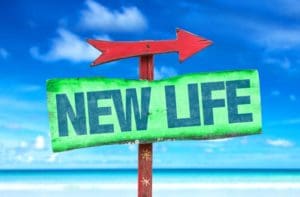Who Should Consider Rehab?
If you are struggling with drugs or alcohol, treatment options are available. Sometimes the difficulty comes with knowing which type of program is right for you. There are both inpatient and outpatient rehab centers available.
While there are many distinctions in the type of care provided and the level of care, the primary distinction between inpatient and outpatient rehab is that a person sleeps in an inpatient facility. Inpatient treatment is more comprehensive and outpatient rehab is a more flexible treatment option.
A person who might consider Maryland inpatient rehab includes someone who:
- Has been clinically recommended to participate in inpatient rehab
- Has tried lower levels of care and experienced a relapse
- Someone with a long-term or severe drug and alcohol addiction
- Any who does not have a stable, supportive home to live in while completing their treatment program
A person who might consider Maryland outpatient rehab includes someone who:
- Has been clinically recommended to participate in outpatient rehab
- Has already completed a higher level of care such as a medically-supervised detox and a stay at an inpatient rehab center
- Someone with a short-term or mild drug or alcohol addiction
- Anyone who isn’t able to leave home for a period of time for inpatient treatment
Outpatient rehab can be something people participate in as their first form of addiction treatment. An outpatient treatment program can also be part of a continuum of care. In this situation, someone would first do a higher-intensity treatment program, such as staying in a residential facility. When they completed residential treatment, they could transition to an outpatient treatment facility.
Directions from Takoma Park to Our Inpatient Treatment Center
The Freedom Center is conveniently located in Maryland. If you’re coming from Takoma Park to the Freedom Center residential facility in Buckeyswotn, MD, you can expect a drive of around 1 hour.
- It’s an estimated 40 miles from Takoma Park to Buckeystown
- The drive can vary depending on the route you take but can be as short as 55 minutes
Directions from Takoma Park to Our Outpatient Treatment Center
The Freedom Center is conveniently located in Maryland. If you’re coming from Takoma Park to the Freedom Center in Gaithersburg, MD, you can expect a drive of around 40 minutes.
- It’s an estimated 20 miles from Takoma Park to Gaithersburg
- The drive can vary depending on the route you take but can be as short as 35 minutes
It’s possible to reach the Freedom Center from Takoma Park via MD-200 E, 1-270 S or 1-270 S and then 1-495 E.
Types of Recovery Programs

What many people don’t realize is how broad the term treatment or rehab can be.
There are different types of programs, and some of these include:
- Residential/inpatient treatment is a higher level of care which includes housing, continuous access to treatment providers, and more programming hours each week.
- Day treatment is the highest level of outpatient care in addiction treatment. Day treatment is also called partial hospitalization. During a day treatment program, there is a rigorous schedule and patients are expected to be at the treatment facility most of the day until they return home in the evenings.
- Intensive outpatient programs or IOPs are more flexible and less strictly scheduled than day treatment, but still, provide a high level of care. Most IOPs require client participation anywhere from 9 to 19 hours a week.
- Aftercare or continuing care is a very broad term that can refer to ongoing continual therapy, follow-up check-ins from the staff of a treatment center, or participation in support and recovery groups like NA and AA.
What Are the Benefits of Addiction Treatment?
While some are best suited to a residential treatment program, an outpatient rehab program can be advantageous for many others.
The following are some general benefits of inpatient/residential rehab:
- Inpatient treatment provides continuous, intensive support
- Clients have a safe and supportive space to keep them focused on their recovery
- It is an ideal option for those who do not have a stable or supportive home
- It can provide a stepping stone before moving to an outpatient program
The following are some general benefits of outpatient rehab:
- Outpatient rehab is less expensive than an inpatient program.
- Modern and innovative outpatient rehabs offer a high level of care and multi-faceted, holistic treatment approaches that are similar to what’s offered during a residential rehab program.
- There is a sense of balance between home and work life along with treatment during outpatient rehab.
- Outpatient rehab allows people to continue receiving the support of their family and loved ones. A personal support system can be a critical component of successful treatment outcomes.
- It’s more feasible for family therapy and family sessions to be included in an outpatient program that’s close to home.
- There doesn’t have to disruption to work or other responsibilities to participate in outpatient treatment.
How Should You Choose a Drug and Alcohol Rehab?

Choosing a rehab facility of any kind is an important decision. The following are some considerations to keep in mind when choosing an outpatient program:
- Is holistic treatment available—for example, does treatment go beyond addiction treatment to deal with the whole person? Are services such as family programs, life skills, and exercise and nutrition available?
- What kind of staff works at the facility? Is there a combination of both addiction and mental health professionals?
- Is dual diagnosis treatment for co-occurring disorders available?
- Is the facility accredited as an intensive outpatient program?
- What kind of follow-up and aftercare are available once someone completes their treatment?
- How flexible is the scheduling?
- What types of therapy are used? For example, is there a combination of individual and group therapy?
Contact the Freedom Center if you’d like to learn more about our programs including our intensive outpatient programs. We accept most types of insurance, and we’re happy to answer any questions you may have.
Local Addiction Recovery Resources for Takoma Park, MD
Alcoholics Anonymous
- 7930 Georgia Ave, Silver Spring, MD 20910
- https://www.aa.org/
- (301) 587-6191
- Direction: https://goo.gl/maps/X5Z6ywe19dqvuAEK9
Al-Anon & Alateen
- 278 Carroll St NW, Washington, DC 20012
- http://www.al-anon-alateen-dcmd.org/
- (202) 635-2023
- Directions: https://goo.gl/maps/V1HkMa6drppdoGvu5
Seventh-Day Adventist Hospital
- Takoma Park, MD 20912
- https://www.adventisthealthcare.com/locations/profile/washington-adventist-hospital/
- Direction: https://goo.gl/maps/Q2118fn7MFXTnHZh6
Cephas Marcellus R MD
- 7610 Carroll Ave # 200, Takoma Park, MD 20912
- (301) 891-2077
- Directions: https://goo.gl/maps/ui6jejWxGSxEszps9
Takoma Park Police Department
- 7500 Maple Ave, Takoma Park, MD 20912
- https://takomaparkmd.gov/234/Police
- (301) 270-1100
- Directions: https://goo.gl/maps/zyLCrRkUiUqDtbxL9




























